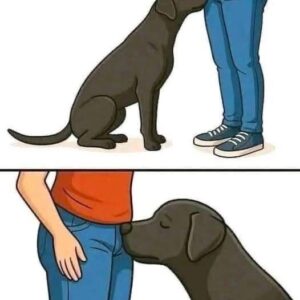Many of us are guilty of it: showering at night, crawling into bed, and letting our hair air-dry while we sleep. It feels harmless, even comforting, but experts warn that regularly sleeping with wet hair can have unexpected consequences for both your hair and scalp health. What seems like a simple bedtime habit might be doing more harm than you realize.
One of the most immediate issues with sleeping on wet hair is breakage. When hair is wet, it is far more fragile than when it is dry. The outer layer of the hair shaft, known as the cuticle, softens and becomes more vulnerable to friction against your pillow. As you toss and turn during the night, those strands are subjected to stress that can cause them to snap or split. Over time, this leads to frizz, thinning ends, and a loss of shine that no conditioner can fully repair.
Scalp health is another concern. Going to bed with damp hair creates a moist environment right at the roots, and that’s the perfect breeding ground for bacteria and fungi. The warmth of your pillow combined with the lingering moisture can irritate your scalp, potentially causing itching, redness, or flaking. In some cases, it may even worsen dandruff. For those with sensitive skin, the trapped moisture can also lead to discomfort and an unpleasant odor.
Beyond the cosmetic effects, some health professionals caution that this habit could impact your overall wellness. Though it won’t directly cause colds or flu—since those are caused by viruses—sleeping with wet hair does lower your body’s temperature temporarily, which may weaken the immune system in some people. Additionally, prolonged exposure to moisture near your head and neck might aggravate sinus issues or trigger headaches in those already prone to them.
The long-term consequences can be especially frustrating for people trying to grow healthier, stronger hair. Moisture left in the hair for hours disrupts the natural protein bonds inside each strand, weakening their structure. Combine this with daily stressors like heat styling or sun exposure, and the result is hair that breaks more easily and grows unevenly. For anyone dealing with thinning or hair loss, this habit only makes the problem worse.
So, what can you do if you prefer nighttime showers? The good news is that you don’t need to give them up—you just need to adjust your routine. Towel-dry your hair gently by blotting, not rubbing, to remove as much moisture as possible. Using a microfiber towel or a soft cotton T-shirt can reduce friction and speed up drying. If you’re pressed for time, use a blow dryer on a cool setting until your hair is at least mostly dry before hitting the pillow.
Another option is to braid or loosely tie your hair while it’s still slightly damp. This helps control tangling and minimizes friction while you sleep. For added protection, consider swapping your cotton pillowcase for a silk or satin one. These fabrics reduce friction, keep hair smoother, and are gentler on both strands and skin.
Ultimately, while sleeping with wet hair once in a while may not ruin your locks, making it a nightly habit can quietly chip away at both your hair’s strength and your scalp’s health. Paying attention to small changes in your bedtime routine—like ensuring your hair is dry before sleep—can make a huge difference in maintaining stronger, healthier hair over the long run.
Sometimes, it’s the little habits we don’t think twice about that have the biggest impact. And when it comes to your hair, avoiding the wet-hair mistake before bed is one of the simplest ways to protect it.





